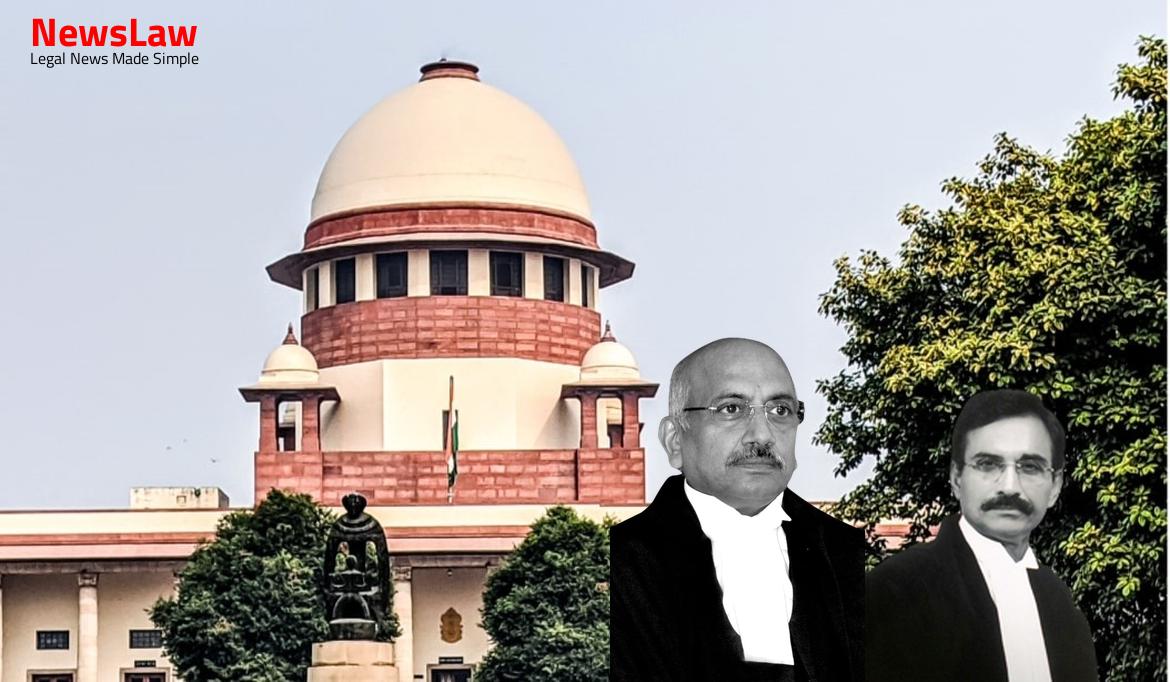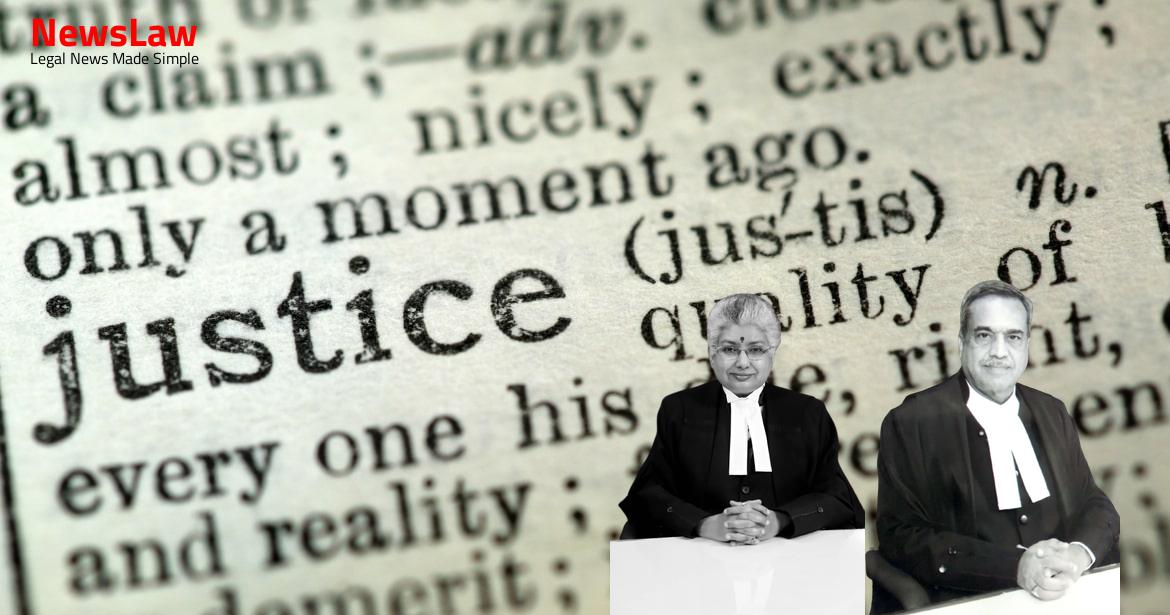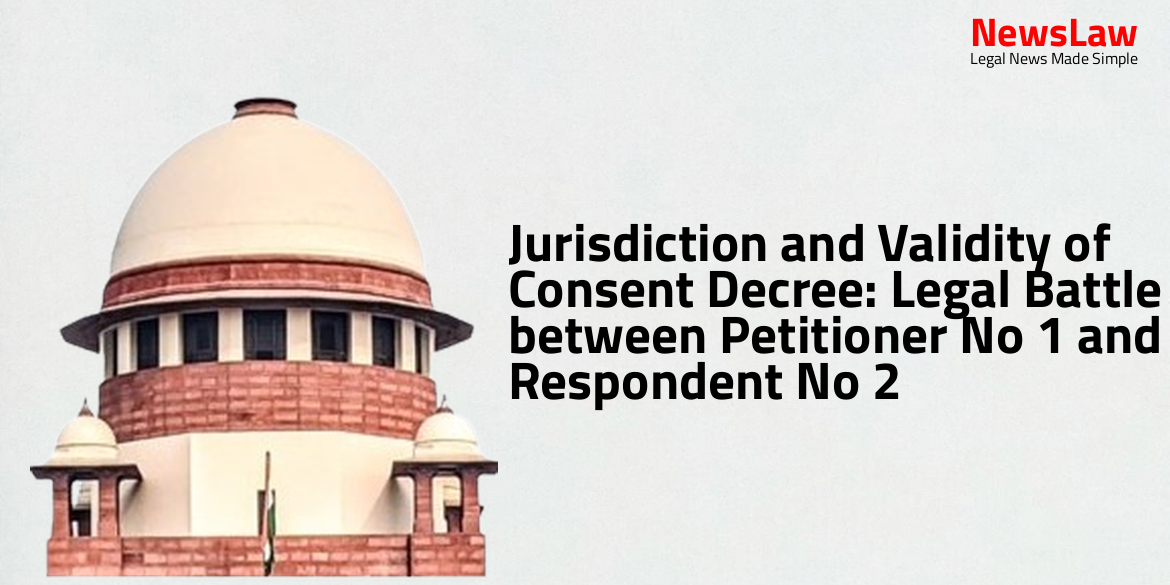Delve into a recent court judgment addressing the impounding of power of attorneys in a partition suit. The court’s meticulous legal analysis focused on stamp duty requirements, the transfer of possession, and the admissibility of evidence. This summary provides insights into the court’s approach to objections raised during trial proceedings, emphasizing the importance of examining the Orissa Act’s provisions. Stay tuned for a breakdown of the court’s findings on this complex legal issue.
Facts
- The appellant challenged an order passed by the High Court of Orissa in 2019 regarding impounding power of attorneys (Exts. 4 and 5) in a partition suit.
- The power of attorney dated 21 February, 2011 was produced as Ex.4 on 9 July, 2008 by PW 1 Kishore Chandra Behera.
- Another power of attorney dated 4 October, 2008 was produced as Ex.5 in evidence on 7 August, 2018.
- The appellants filed an application under Order XIII Rule 8 of the Code to impound the power of attorneys, citing them to be treated as Conveyance under the Indian Stamp Act.
- The objection was made by the present appellants regarding the impounding of the power of attorneys.
Also Read: Interpretation of Mandatory Statutory Time Limits
Analysis
- The power of attorney must be adequately stamped to be admitted in evidence.
- The intention of the power of attorney is to give the attorney the right to sell the land.
- Possession was transferred to the attorney as admitted by PW-1.
- Objections raised regarding the admissibility of evidence can unnecessarily prolong trial proceedings.
- The court found that the practice of delaying proceedings due to objections is archaic.
- The power of attorney may be treated as conveyance if possession is transferred before, at the time of, or after its execution.
- The court highlighted the importance of examining the stamp duty requirements in light of the Orissa Act’s provisions.
- The judgment referred to by the respondents does not deal with the objection of insufficient stamp duty required under the Act
- In another judgment, the trial court rejected documents for consideration based on Section 36 of the Act
- In a different case, a plaintiff claimed possession based on an agreement to sell, and objections were required to be raised after the document was admitted as evidence
- A judgment examined the admissibility of a document that was not duly stamped and registered, classifying objections into two categories
- The High Court set aside the demand for stamp duty, treating the document as a conveyance
- Section 36 of the Act applies only when an objection regarding insufficient stamp duty is judicially determined
- Question of possession transfer at the time or after execution of power of attorney is a matter of fact to be decided by the Court after evidence is led by parties.
- Objection regarding stamp duty on power of attorney claimed to be conveyance is dependent on finding of delivery of possession as per power of attorney.
- In cases where evidence is needed to determine the nature of a document, admissibility for insufficient stamp duty can be deferred to the final decision in the suit.
- The orders passed by the trial court and the High Court are set aside.
Also Read: Challenging Legal Analysis in Acquittal Reversal
Decision
- The matter is remitted to the trial court to decide the objection of admissibility of the document on account of being insufficiently stamped after evidence is led by the parties.
- The appeal is disposed of in light of the findings recorded.
- The application filed by the appellants on 3 September, 2018 will be decided along with the main suit.
- The question of delivery of possession at the time of the execution of the power of attorney or thereafter will be determined in the main suit.
Also Read: Reservation Shortfall for Hindu Nadar Community
Case Title: M/S Z ENGINEERS CONSTRUCTION PVT LTD Vs. BIPIN BIHARI BEHERA (2020 INSC 196)
Case Number: C.A. No.-001627-001627 / 2020



